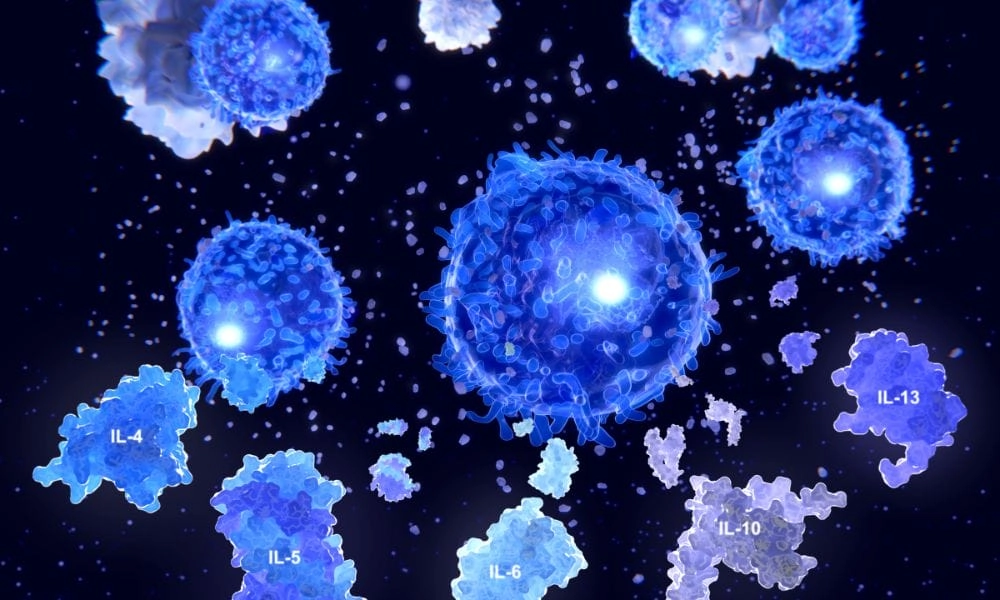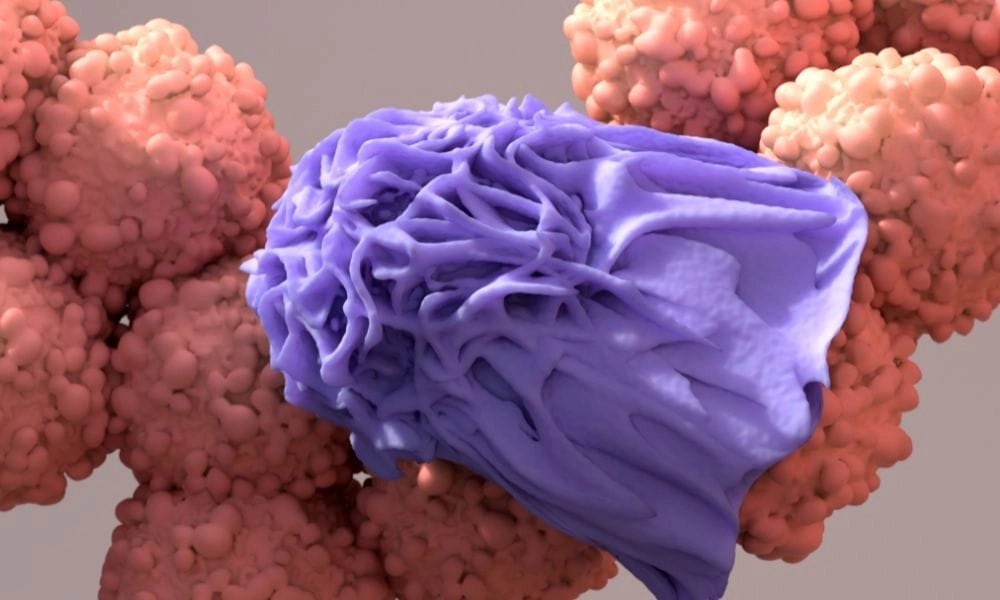Inmunoterapia
La inmunoterapia es un tipo de tratamiento contra el cáncer que utiliza el sistema inmunológico del cuerpo para combatir las células cancerosas. Este funciona estimulando el sistema inmunológico para que reconozca y ataque las células cancerosas de manera más efectiva.
Tratamiento contra el cáncer
Un enfoque único en el tratamiento del cáncer
Este enfoque terapéutico tiene como objetivo aprovechar, manipular e incrementar la capacidad de defensa del organismo para atacar y eliminar las células tumorales. Nuestros especialistas en oncología saben exactamente cómo aprovechar al máximo los beneficios de este tratamiento.
La inmunoterapia ofrece ventajas significativas, entre ellas: un enfoque más específico, respuestas duraderas, menos efectos secundarios graves; así como la posibilidad de combinarse con otros tratamientos oncológicos.
Para evaluar la idoneidad de la inmunoterapia, el oncólogo toma en consideración el tipo de cáncer, el estado de salud del paciente y otros factores individuales.


Eficacia
La eficacia de la inmunoterapia ha sido probada en el tratamiento de varios tipos de cáncer, lo que la convierte en una opción prometedora para pacientes con diferentes diagnósticos.

Efectos Secundarios
Aunque la inmunoterapia puede tener efectos secundarios, estos suelen ser diferentes de los asociados con la quimioterapia y la radioterapia, y en general, son menos graves.

El especialista
Es imprescindible contar con el apoyo de oncólogos especializados en este tipo de tratamiento, ya que la inmunoterapia constituye un sector en desarrollo a nivel global, el cual abarca múltiples posibilidades terapéuticas.
¿Cómo funciona la inmunoterapia contra el cáncer?
La inmunoterapia se dirige de una manera más específica a las células cancerosas, lo que reduce el daño a las células sanas en comparación con otros tratamientos como la quimioterapia.
Este innovador tratamiento oncológico ha demostrado generar respuestas duraderas, permitiendo que el sistema inmunológico pueda seguir combatiendo las células cancerosas incluso después de finalizado el tratamiento.
Tipos de Inmunoterapia
Nuestros oncólogos tienen los conocimientos y la experiencia necesaria para administrar de manera exitosa los siguientes tratamientos de inmunoterapia:
Anticuerpos Monoclonales
Nuestros oncólogos tienen los conocimientos y la experiencia necesaria para administrar de manera exitosa los siguientes tratamientos de inmunoterapia:
Terapias de Puntos de Control Inmunitario
Estos medicamentos bloquean proteínas que inhiben la respuesta inmunitaria, permitiendo que el sistema inmunológico ataque las células cancerosas de manera más efectiva.
Vacunas Contra el Cáncer
A través de vacunas específicas, es posible estimular el sistema inmunológico para que reconozca y combata las células cancerosas.
¿Para quién está recomendada la inmunoterapia?
La inmunoterapia está recomendada para pacientes con ciertos tipos de cáncer como, por ejemplo: el melanoma, el cáncer de pulmón, el cáncer de riñón, entre otros. Sin embargo, no todos los pacientes son candidatos para este tratamiento, por lo que es importante consultar con un especialista para determinar la idoneidad del tratamiento.

¿Cómo se usa la inmunoterapia con otros tratamientos?
En cuanto a la combinación con otros tratamientos oncológicos, la inmunoterapia puede ser utilizada en conjunto con la quimioterapia, la radioterapia, la cirugía u otros tratamientos específicos para el cáncer. Esta combinación puede potenciar la efectividad del tratamiento y ofrecer opciones más completas para combatir la enfermedad.
¿La inmunoterapia puede causar efectos secundarios?
La inmunoterapia causa ciertos efectos secundarios, los cuales pueden variar según el tipo de tratamiento utilizado. Algunos de estos son:
- Fatiga.
- Erupciones cutáneas.
- Diarrea.
- Síntomas similares a los de la gripe.
Es importante informar a su médico sobre cualquier efecto secundario experimentado durante el tratamiento.
¿Cuánto tiempo dura el tratamiento de inmunoterapia?
La duración del tratamiento de inmunoterapia varía considerablemente según el tipo de cáncer que se está tratando, el estado de salud del paciente y la respuesta propia a los medicamentos.
En algunos casos, la inmunoterapia puede administrarse durante un período de tiempo limitado, como unas pocas semanas o meses; mientras que en otros casos puede ser necesaria una terapia a largo plazo. La inmunoterapia puede ser utilizada de manera continua, intermitente o en combinación con otros tratamientos oncológicos.
